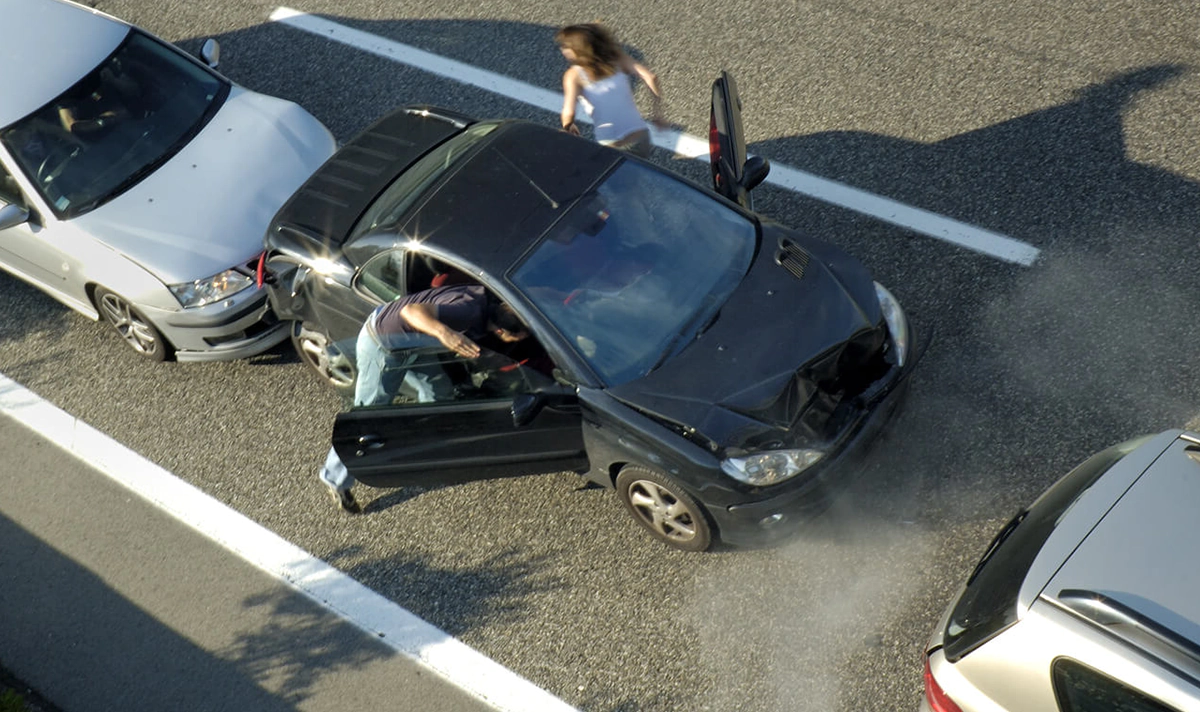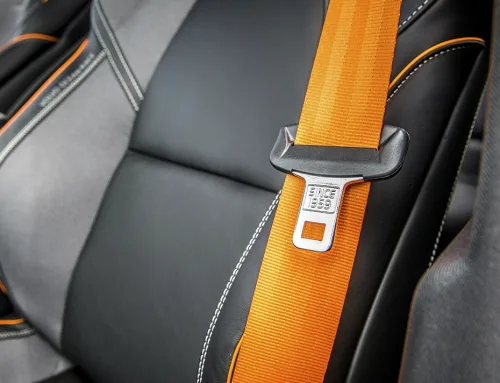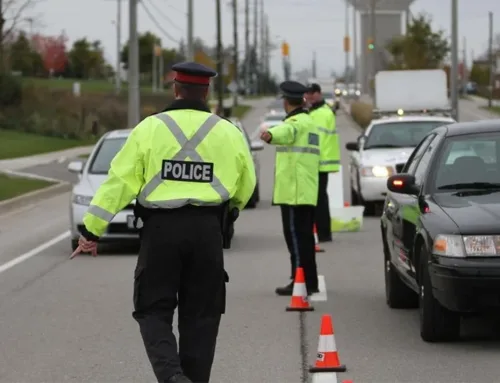What Constitutes Following Too Closely or Tailgating?
From a legal perspective, following too closely, or tailgating, is defined under the Highway Traffic Act (HTA) of Ontario. According to Section 158 of the HTA, a driver is required to maintain a safe distance from the vehicle in front to avoid collision. The law does not specify an exact distance, recognizing that what is considered “safe” can vary based on several factors including speed, traffic conditions, and weather. This subjectivity means that law enforcement officers have discretion in determining whether a driver is following too closely, which also gives you a chance to challenge the officer’s opinion.
A general guideline is the “two-second rule,” which suggests maintaining at least a two-second gap between vehicles. However, this distance must be increased in adverse conditions. For commercial vehicles, the minimum distance is legally set at 60 meters due to their larger size and longer stopping distances.
Follow to Close – Commercial Vehicles
Commercial vehicles, such as trucks and buses, have stricter regulations under the HTA due to the potential hazards they pose. These vehicles must maintain a minimum following distance of 60 meters (approximately 200 feet) when traveling at speeds above 60 km/h. This regulation aims to prevent accidents caused by the extended stopping distances required by heavier vehicles. Violations of this regulation can lead to severe penalties, including higher fines and additional demerit points.
Consequences of a Following Too Closely Ticket
Receiving a ticket for following too closely can have significant legal and financial repercussions.
Overview of Penalties for a Following Too Closely Ticket
Under Ontario’s HTA, the penalties for following too closely can include fines ranging from $60 to $1000. In addition to fines, drivers will receive four demerit points on their driving record. These points are recorded by the Ministry of Transportation and can impact driving privileges.
The accumulation of demerit points is a critical aspect of Ontario’s traffic enforcement system. Drivers who accumulate too many points can face escalating penalties, including mandatory re-education courses, increased fines for subsequent offences, and potential suspension of their driver’s license. For novice drivers, the penalties can be even more severe, reflecting the higher standards expected of them.
How Accidents Affect Fines
If a violation of the following distance regulation results in an accident, the penalties can escalate. The driver may face additional charges such as careless driving under Section 130 of the HTA. This can result in higher fines, more demerit points, and increased liability for any damages caused by the accident, including medical and repair costs.
Financial Costs of Tailgating Tickets
Beyond fines, tailgating tickets can have long-term financial consequences. Convictions for following to closely can lead to increased insurance premiums as insurers view these infractions as indicators of risky driving behavior. This increased cost can persist for several years. Additionally, repeat offenses can result in more severe penalties.
Insurance companies in Ontario use a driver’s record to assess risk and determine premiums. A single ticket for following too closely can raise your insurance rates by a significant amount, potentially hundreds of dollars annually. If you receive multiple tickets, the financial impact can be even more substantial. Moreover, some insurers may even refuse to renew your policy if they deem you too high-risk, forcing you to seek coverage from high-risk insurance providers at even higher rates.
Impacts on Driving Record and License Points
A ticket for following too closely results in four demerit points being added to the driver’s record. In Ontario, accumulating too many demerit points within a short period can lead to escalating penalties. For instance, at six points, the driver may receive a warning letter. At nine points, the driver may face an automatic license suspension.
Impacts on Insurance for Following Too Closely
Insurance companies in Ontario consider driving records when calculating premiums. A ticket for following too closely is seen as a sign of high-risk behavior, leading to increased insurance rates. This financial burden can be significant, lasting for several years as the infraction remains on the driver’s record.
How to Get a Following Too Closely Ticket Dismissed
To contest a following too closely ticket, it is crucial to gather and present evidence effectively. Here are steps to take:
- Witness Statements: Collect testimonies from any passengers or other drivers who witnessed the incident.
- Dash Cam Footage: Utilize video evidence from dash cams to provide an objective view of the event.
- Traffic and Weather Conditions: Document any external factors, such as adverse weather or unusual traffic conditions, that could justify your driving behavior.
Engaging a legal professional, can significantly enhance your defense. Experienced paralegals understand the nuances of traffic law and can present a robust case to contest the ticket. They can help gather and organize evidence, represent you in court, and negotiate for reduced penalties or dismissal of the ticket.
Conclusion
Navigating the legal implications of a following too closely ticket requires a thorough understanding of the HTA and the potential penalties involved. By maintaining safe following distances and seeking professional legal assistance when necessary, drivers can better protect their driving records and finances. Staying informed about traffic laws and practicing cautious driving are essential steps in avoiding the severe consequences of tailgating violations.









Leave A Comment
You must be logged in to post a comment.